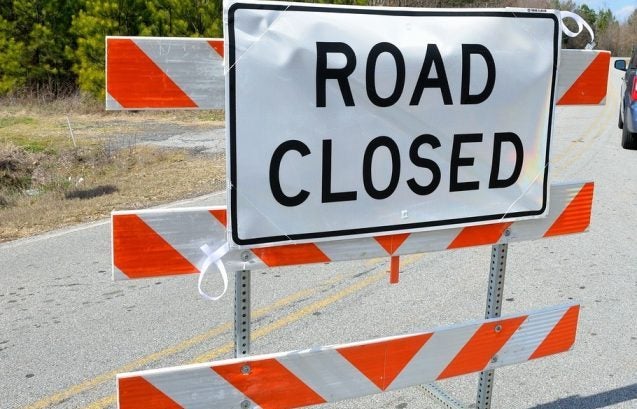Some counties write off little tax debt
Published 4:52 pm Tuesday, February 27, 2024
|
Getting your Trinity Audio player ready...
|
Some area county treasurers prove true Benjamin Franklin’s famous saying that taxes are one of two things in the world that are certain. Some of the counties in our region are seeing nearly 100% collected on tax assessed on real estate.
They mark this achievement each year as they tally up the amount that remains uncollected after 20 years, the state-mandated point when they have to write-off what remains unpaid.
Treasurers in Charlotte, Prince Edward and Buckingham counties write off less than a few hundredths of a percent of real estate assessments each year.
“We had to write off $21.70 for 2003 due to the parcel not bringing enough at auction,” Charlotte County Treasurer Patricia Berkeley said.
Next door in Prince Edward County, Treasurer Donna Nunnally said the county was left with only $198.23 from 2003 to write off at the end of December 2023. Amounts there are similar for previous years with $196.51 written off in 2022 on the 2002 tax assessments, $133.93 in 2021 for 2001, $122.13 in 2020 for 2000, and $241.90 in 2019 for 1999.
“Included in these totals are two parcels that have been removed from the tax books by the Commissioner of the Revenue’s office and one parcel that doesn’t exist but hasn’t yet been removed by the Commissioner of the Revenue’s office,” Nunnally explained. “The land owner said it was absorbed by surrounding properties but hasn’t yet been proven. We also have another parcel that is in litigation to have the deed corrected. Additionally, three parcels will be or have been complicated sales due to GIS issues, being unmapped or the purchaser fell through.”
COLLECTING THE TAX
All of the officials said treasurers in Virginia have a lot of options when it comes to collecting delinquent real estate taxes.
A 10% penalty is added to the tax due the day after the deadline for payment. Additionally, interest is added at the amount of 10% each year. Interest begins the following month and that’s 10% per year, which is a little less than 1% a month.
Now if you fail to pay by the deadline.
Failing to pay by the deadline, a $100 tax bill becomes $110.
All of the offices also rely on sending delinquent notices to property owners.
Berkeley said that after they send the past due notices in Charlotte County and the taxes are not paid, they move on to start collections.
One thing Charlotte County does is no permits can be issued for a property if there are delinquencies. Berkeley added the county also imposes a tax lien on the property and uses “debt set-off with state taxes.”
Both Charlotte and Prince Edward treasurers said selling the property to collect the unpaid tax is a measure they use once it is allowed under state law after three years.
“If the taxes remain unpaid after two years, we mail letters informing the owners of our intention to submit their parcel to the collection’s attorney,” Berkeley said. “If not paid or a payment plan established, our office will submit the parcels to the attorney, and they will begin the legal requirements to handle the judicial sale process. This process takes time and incurs fees.”
She said property owners can redeem the parcel at any time prior to the sale by paying the tax and all associated fees, interest and penalties.
In Prince Edward County, Nunnally said normal collection processes are practiced until properties are three years delinquent.
“After the three-year mark, if payments are not being made to resolve the debt, the law firm Taxing Authority Consulting Services PC will auction these properties to cover any taxes and/or collection costs owed to the county,” Nunnally said.
HELP FOR TAXPAYERS
All three county treasurers said they will work with property owners to help them get their taxes paid.
“I would just like the landowners to know if they are having issues, please call the office before it gets so far behind,” Nunnally said for Prince Edward County. “We will try our best to help them with a reasonable payment plan.”
In Charlotte County, Berkeley said they also offer to work with property owners through payment plans and pre-payment options.
“And we accept credit cards for payment of any taxes due,” she said.
TREASURER STANDARDS
County treasurers also have standards for getting their offices accredited by the state treasurer’s association. Now, there are certain requirements that have to be met in order for your office to be accredited.
The Treasurer’s Association requires that the collection rate two years out be at least 95%.
Charlotte County has a solid collection rate, meeting the state association standards.
Berkeley said the collection rate there was 95.75% on June 30, 2023, for the 2023 fiscal tax year.
“We bill on a fiscal tax year which is from July 1 to June 30, with an assessment date of July 1,” she explained. “The rate collected for the first half due Dec. 5, 2022, was 98% and for the second half due June 5th was 93.49% with an average of 95.75%.”
And Berkeley’s office hit that June 30, 2023 number without having sent its paid due notices yet.





